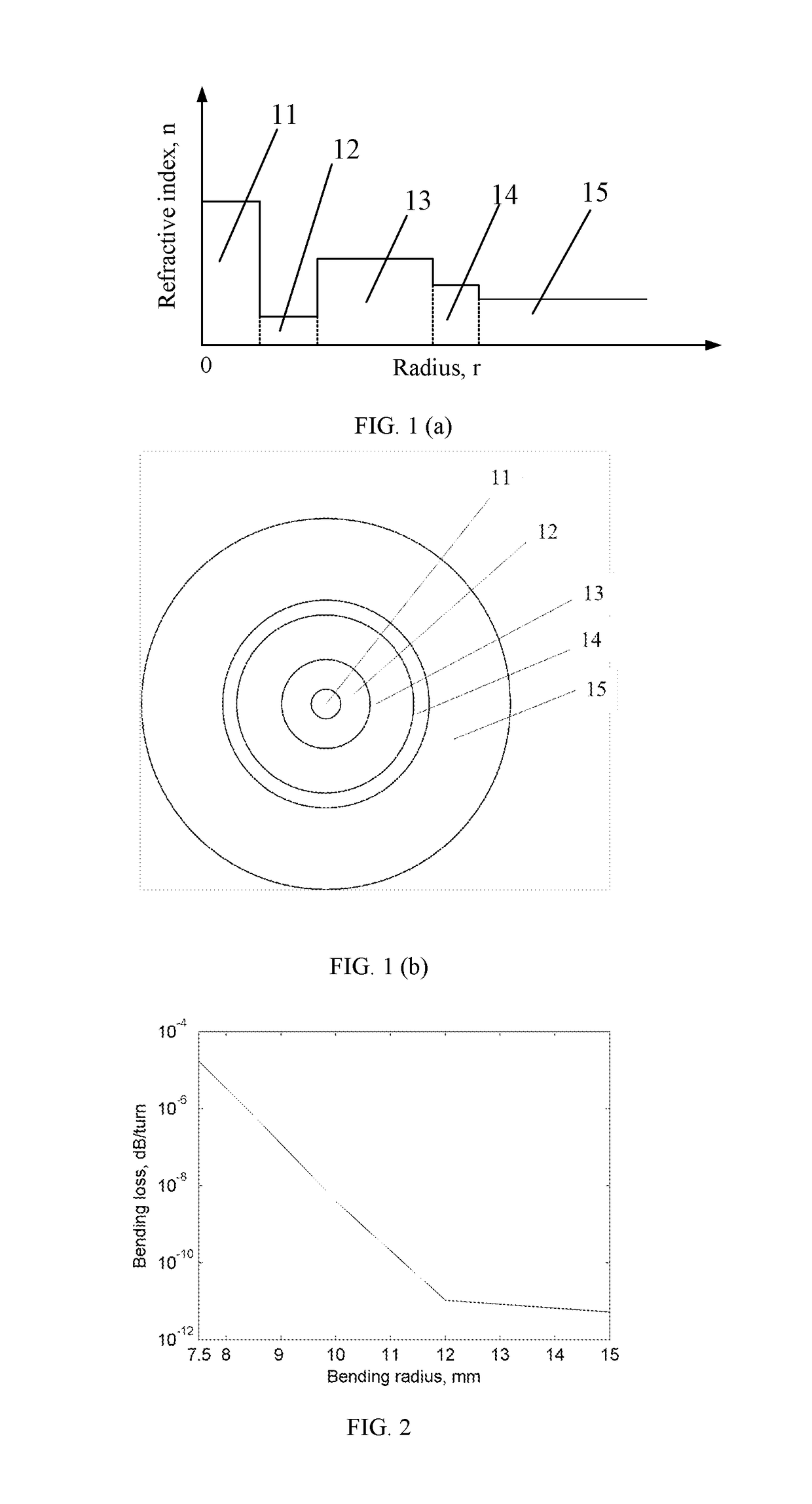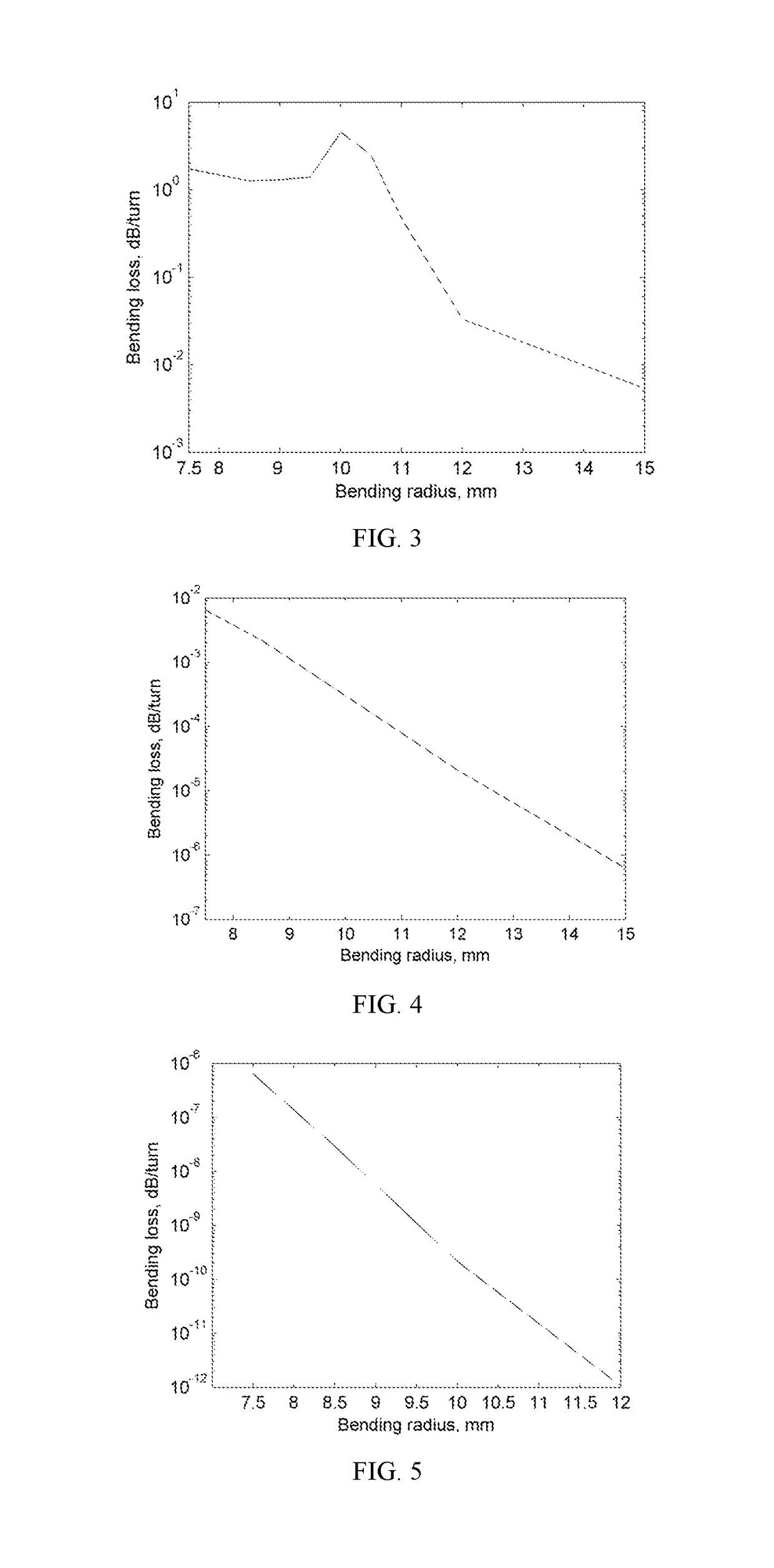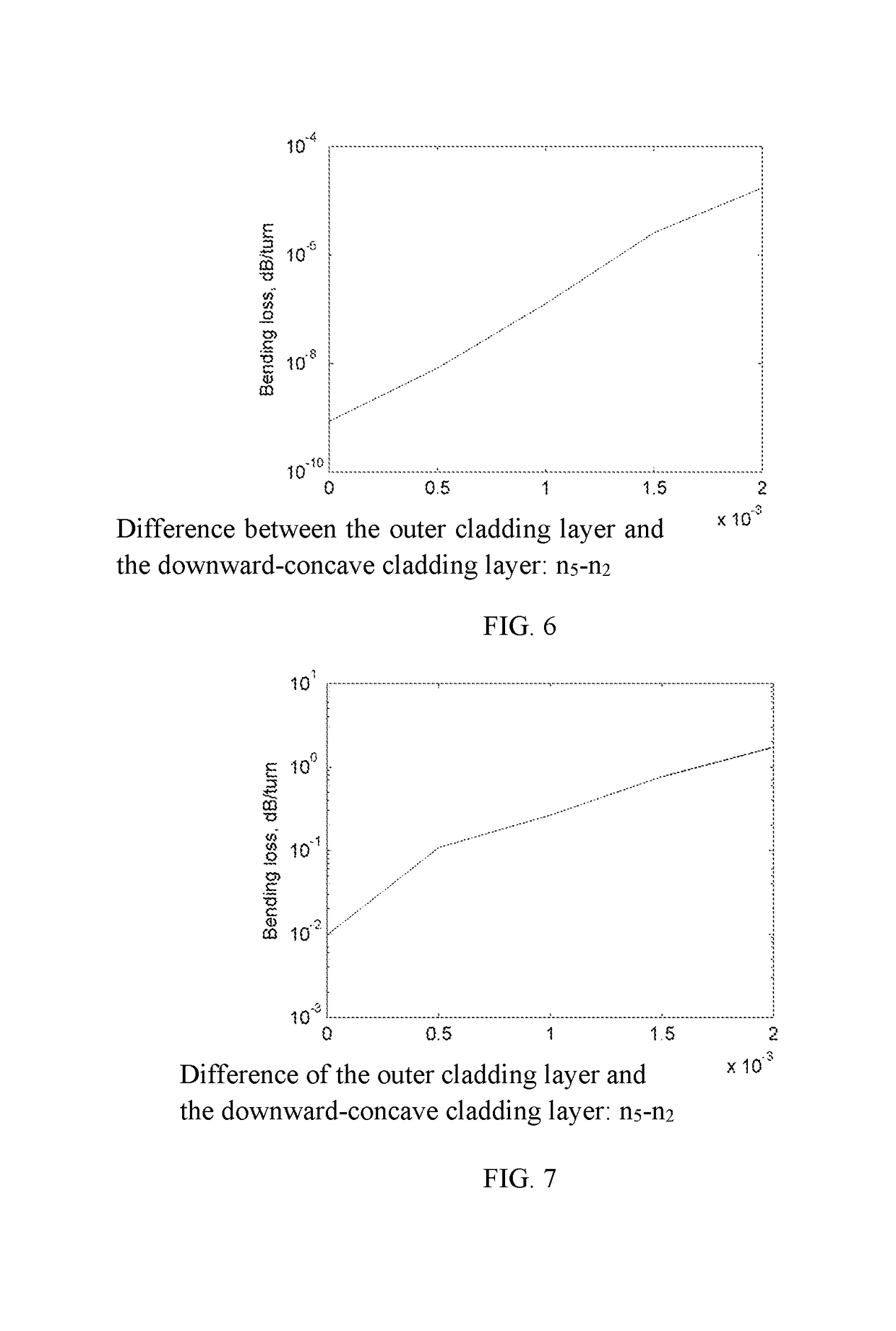A few-mode optical fiber
a technology of optical fiber and fiber optics, applied in the field of few-mode optical fiber, can solve the problems of limiting the practical application of the system, reducing the communication speed and capacity, etc., and achieve the effect of small bending radius and low splicing loss
- Summary
- Abstract
- Description
- Claims
- Application Information
AI Technical Summary
Benefits of technology
Problems solved by technology
Method used
Image
Examples
embodiment 1
[0054]In the fiber core 11 with a core radius a1=4.4 μm, the index difference between the fiber core 11 and the downward-concave cladding layer 12 n1−n2=0.01; the index difference between the downward-concave cladding layer 12 and the first upward-convex cladding layer 13 n3−n2=0.004; and the index difference between the first upward-convex cladding layer 13 and the second upward-convex cladding layer 14 n3−n4=0.0005; the index difference between the second upward-convex cladding layer 14 and the outer cladding layer 15 n4−n5=0.0015. The radius of the downward-concave cladding layer 12, the first upward-convex cladding layer 13, and the second upward-convex cladding layer 14 fall within the following values: a2=5 μm, a3=10 μm, a4=4 μm. The mode field diameter at the wavelength of 1.310 μm is 8.8 μm. The bending loss of the LP01 mode is lower than 1×10−4 dB / turn at the bending radius of 7.5 mm. The bending loss of the LP11 mode is lower than 1.7 dB / turn at the bending radius of 10 mm...
PUM
 Login to View More
Login to View More Abstract
Description
Claims
Application Information
 Login to View More
Login to View More - R&D
- Intellectual Property
- Life Sciences
- Materials
- Tech Scout
- Unparalleled Data Quality
- Higher Quality Content
- 60% Fewer Hallucinations
Browse by: Latest US Patents, China's latest patents, Technical Efficacy Thesaurus, Application Domain, Technology Topic, Popular Technical Reports.
© 2025 PatSnap. All rights reserved.Legal|Privacy policy|Modern Slavery Act Transparency Statement|Sitemap|About US| Contact US: help@patsnap.com



